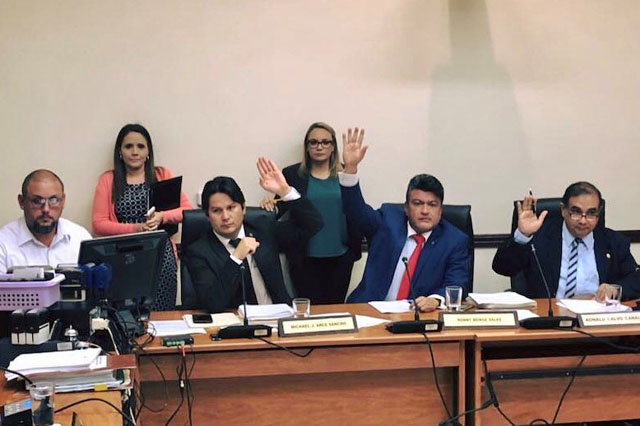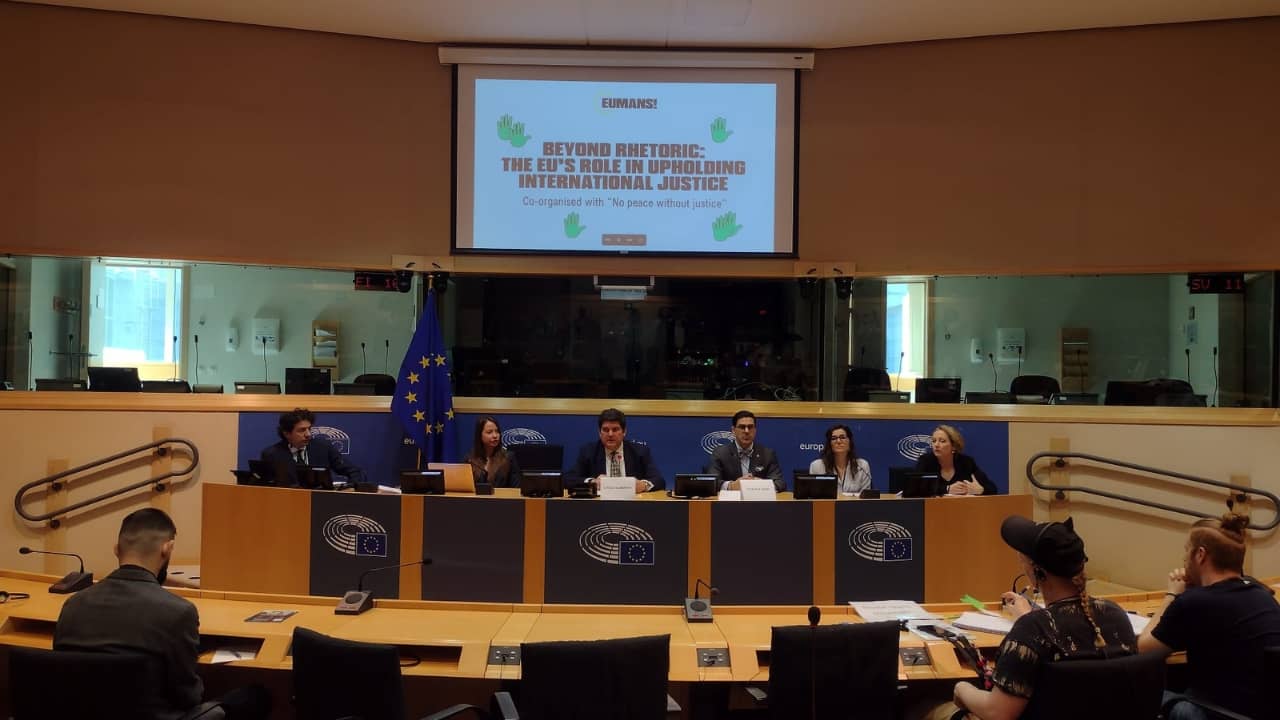
New York/ The Hague – On 4 April 2018, under the leadership of PGA member Dip. Ronny Monge Salas, the Legislative Assembly of Costa Rica unanimously approved in its reading debate, the draft law number 19.665 on Cooperation and Relations with the International Criminal Court (ICC). Dip. Monge is the author of said draft law, which is entirely based on PGA’s “reference law” on cooperation with the ICC that creates legislative frameworks for direct cooperation among judicial and prosecutorial organs of the State and the ICC, as well as frameworks to directly give effect to all voluntary cooperation schemes promoted by the ICC (e.g. enforcement of sentences, protection and relocation of victims and witnesses, as well as final or interim release).
This achievement represents the culmination of a process that commenced in 2013, after the participation of Dip. Oscar Alfaro Zamora, former Chair of the Foreign Affairs Committee of the Legislative Assembly of Costa Rica, in the PGA Sub-Regional Working Group on Challenges for the Effectiveness of the Rome Statute system in the Americas held in the Parliament of Uruguay. Following this action-oriented event, Dip. Alfaro requested PGA’s technical assistance in the drafting of a cooperation law. Despite receiving some support, his initiative, presented in the Legislative Assembly in April 2014, was not approved as there were some serious gaps.
A new draft cooperation bill, number 19.665, was then introduced in Parliament by Dip. Monge after extensive technical and political consultations. On 21 March 2018, the Legislative Assembly of Costa Rica approved in first reading draft law 19.665, in compliance with Costa Rica’s obligations as a State Party to the Rome Statute.
On 16 March 2017, former PGA President Margarita Stolbizer (Argentina) met with the President of the Legislative Assembly of Costa Rica, Dip. José Alberto Alfaro Jimenez and Costa Rican PGA members to discuss the draft legislation on cooperation with the ICC. It is to be said that the profound commitment of Costa Rica to international justice, democracy, human rights and the Rule of Law has been attested by numerous initiatives of PGA Members in Parliament.
On 19 January 2017, the Parliamentary Commission on Security and Drug Trafficking of the Legislative Assembly of Costa Rica, led by Dip. Monge, approved draft legislation n° 19.665. This was the result of relentless advocacy and “capacity-building” of PGA Members in Costa Rica with their parliamentary colleagues at home and in the Latin American region. Since then, PGA has been following up closely with the members of its National Group in Costa Rica to support the fulfilment of their commitments, which they reiterated on 30-31 October 2017 at the Sub-regional Parliamentary Seminar: International Justice, a fundamental tool for sustainable development in peaceful and inclusive societies, also held in Montevideo, Uruguay.
On 4 November 2016, the Secretariat of Parliamentarians for Global Action (PGA) received a letter from the President of the Legislative Assembly of Costa Rica, Dip. Antonio Alvarez Desanti in response to a letter sent by PGA President Dip. Margarita Stolbizer commending Costa Rica for its positive engagement with other countries in the region on promoting the Rome Statute system and urging the Legislative Assembly to prioritize the review of draft bill n° 16.272 in the plenary and n° 19.665 before the Security and Drug Trafficking Committee: While the latter regards cooperation with the ICC, the former deals with complementarity (substantive crimes and general principles of law). Their combined existence in the domestic legal order will ensure the full implementation of the Rome Statute.
As draft bill 19.665 having received its final parliamentary approval, it has been sent to the Executive for promulgation. PGA seizes the opportunity to commend the tremendous work of its members in Costa Rica to promote accountability for international crimes domestically and internationally.
Indeed, Costa Rican legislators have participated in many PGA workshops, including the annual Montevideo Seminar hosted by the Uruguayan Parliament, during which Latin American MPs exchange on the progress and obstacles in their country to the full implementation of the Rome Statute and cooperation with the ICC. This forum provides a space to share best practices on international justice related topics. The last Montevideo Seminar was held on 30-31 October 2017, during which Dip. Monge pledged to advance the cooperation bill. On 15 May 2017, at the margins of the Regional Parliamentary Workshop to Promote Ratification and Implementation of the Biological and Toxin Weapons Convention, organized by PGA in collaboration with the National Congress of Chile, a PGA parliamentary delegation was received by Mr. Edgardo Riveros Marín, Under-Secretary of Foreign Affairs and Mr. Jaime Campos, Minister of Justice of Chile to discuss the full implementation of the Rome Statute and cooperation with the International Criminal Court (ICC). The PGA delegation included Dip. Ronny Monge (Costa Rica), who made a compelling plea in favor of cooperation with the ICC reminding the distinguished audience that without cooperation the ICC cannot effectively carry-out its mandate and that the stakes were too high for States to stay idle.
Yesterday’s welcomed development is in line with Costa Rica’s public policy of strengthening the Rome Statute system, not only by showing political support in international fora but also by implementing Rome Statute obligations in its domestic legal order, to ensure that the principles of complementarity and cooperation with the ICC, cornerstones of the Rome Statute, are fully operational under domestic law.
Finally, we have approved the draft law on cooperation with the ICC during its second debate, which ends the parliamentary process according to the political constitution of the Legislative Assembly of Costa Rica. Such adoption was completed in the framework of the first plenary commission, which means that the draft bill currently has ended its process in the Legislative Assembly and is sent to the Executive, that has 10 days to make objections or sign the draft bill. The latter scenario would convert the draft bill into the Law on Cooperation and Relation with the International Criminal Court of the Republic of Costa Rica.Dip. Ronny Monge
PGA Member
For more information, please contact:
Ms. Melissa Verpile
Legal Officer
International Law and Human Rights Program
Melissa.Verpile@pgaction.org




